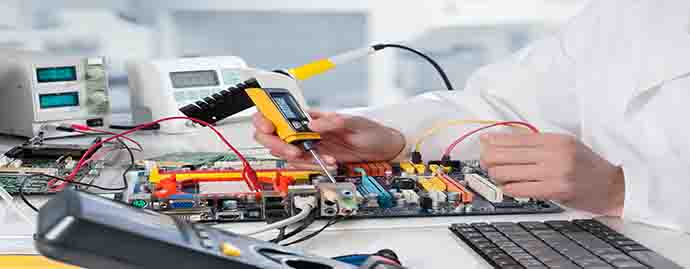| Start Date | End Date | Country | City |
|---|

 +966 920007771
+966 920007771

Objectives
Upon completion of this course, the participant shall be able to;
- Gain an understanding of the operating characteristics of all electrical equipment
- Learn in detail all the diagnostic techniques and inspections required of critical components of electrical equipment.
- Understand thoroughly all the tests required for the various types of electrical equipment
- Determine all the maintenance and troubleshooting activities required to minimize electrical equipment downtime and operating cost
- Gain a detailed understanding of all the calculations and sizing techniques used for all electrical equipment
- Learn how to select electrical equipment by using the performance characteristics
- Learn about the various types of enclosures and sealing arrangements used for electrical equipment
- Learn all the codes and standards applicable for electrical equipment
Outlines
Day 1:Fundamentals of Electrical Systems
- Inductors
- Capacitors
- Resistance
- Electrical circuits & safety
- Alternating current & direct current
- Single-phase & three-phase system
- Power system
- Elements of power system
Day 2:Electrical Transformers
- Machinery principles
- Transformers, types and construction of transformers, size, and performance
- Voltage regulation, transformer efficiency, transformer taps and voltage regulators, autotransformers, three-phase transformers, transformer ratings, inrush current
- Instrument transformers
- Transformers’ characteristics, phase relationships, Star/Star connected transformer, basic materials, dielectrics, copper, iron, insulation, leakage reactance, core construction
- Components of a power transformer, core, windings, nitrogen demand system, conservative tank with air cell, current transformers, bushings, tap changers, insulation
Day 3:Electrical Motors
- Rotating magnetic field, relationship between electrical frequency and the speed of magnetic field rotation, RMS voltage in a three-phase stator, induced torque in a three-phase machine, winding insulation in ac machines, ac machine power flow and losses
- Induction motor construction, rotor slip, electrical frequency of the rotor, losses and the power flow diagram, induction motor torque-speed characteristics, variation of the torque-speed characteristics, starting induction motors, induction motor starting circuits
- DC Motors, types, characteristic, applications
- Synchronous Motors
Day 4: Inverters and Variable Speed Drives
- Variable speed (frequency) drives, principles of ac variable speed drives, inverters, insulated gate bipolar transistors (IGBT’s),
- Pulse-width modulated inverters, input power converter (rectifier), output IGBT inverter, magnetic breaking, regeneration, transients, harmonics, power factor and failures, IGBT switching transients
- ac drives, motor bearing currents, selection criteria for variable speed drives, maintenance, common failure modes, motor application guidelines
Day 5: Uninterruptible Power Systems and Generators
- Uninterruptible power systems (UPSs), UPS operation, voltage regulation, harmonic distortion, advanced UPS design, efficiency, input power converter, inverter, battery system, UPS sizing, battery selection
- Synchronous generators, construction, synchronous generator operating alone, parallel operation of ac generators, synchronous generator ratings, synchronous generator capability curves
- Generator components, auxiliaries and excitation, cooling systems.
- Generator surveillance and testing, generator operational checks (surveillance and monitoring), generator diagnostic testing
- Frequently asked questions
Who Should Attend
The course is suggested for :
- Engineers of all disciplines
- Managers
- Technicians
- Maintenance personnel
- Other technical individuals (this course is suitable for individuals who do not have an electrical background)
Duration
5 Days









